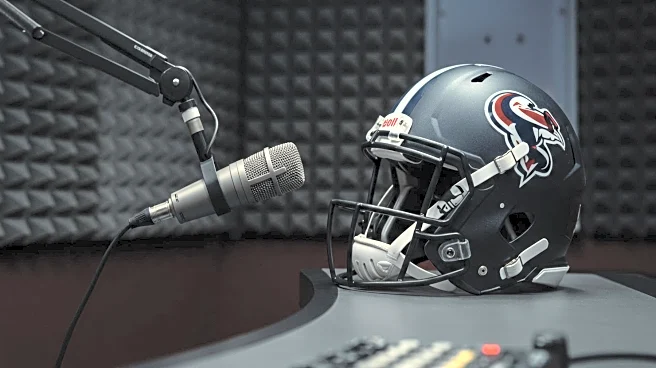What's Happening?
Bill Belichick, known for his coaching in college football, will be featured in the first episode of North Carolina's weekly radio show, 'Carolina Football Live,' on August 27. However, he will not be the regular headliner. Instead, Michael Lombardi, the general manager, will lead the show each week. The show, previously known as 'Mack Brown Live,' will include assistant coaches and players joining Lombardi. The format of college football radio shows has evolved, with live call-in opportunities diminishing over the years. Notably, Nick Saban was one of the few high-profile coaches who continued to take live calls until his retirement in 2024. North Carolina's show will allow fans to submit questions via email if they cannot attend in person.
Why It's Important?
The decision to have Michael Lombardi as the regular headliner instead of Bill Belichick reflects a shift in how college football programs engage with their fan base. This change may influence other programs to reconsider their approach to media engagement, especially as live call-in opportunities become less common. The move could impact fan interaction and the traditional format of college football radio shows, potentially leading to more controlled and curated content. This shift may also affect how coaches and programs manage their public relations and media presence, balancing fan engagement with the need to maintain a positive image.
What's Next?
North Carolina will open its season against TCU on September 1, and the radio show will continue to feature Lombardi along with assistant coaches and players. The program's approach to media engagement may set a precedent for other college football teams, potentially influencing how they structure their own media interactions. Fans and stakeholders will be watching to see how this new format impacts fan engagement and the overall perception of the program.
Beyond the Headlines
The evolution of college football radio shows highlights broader trends in media consumption and fan interaction. As digital communication becomes more prevalent, traditional formats like live call-ins may be replaced by more modern methods such as email and text submissions. This shift could lead to changes in how sports programs connect with their audiences, emphasizing digital engagement over traditional media.











